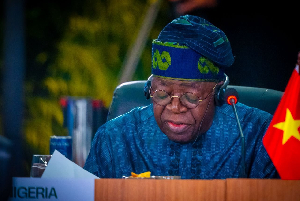A robust recovery in the goods account and a spike in non-oil exports helped Nigeria record a current account surplus of $3.73 billion in the first quarter of 2025.
The surplus was somewhat larger than the $3.69 billion reported in Q1 2024, but a 1.84 percent decrease from the $3.80 billion reported in Q4 2024.
The growth in non-oil exports, which increased by 30.39 percent to $2.66 billion during the period under review, was primarily responsible for this improvement.
Additionally, gas exports increased significantly, rising from $2.10 billion to $2.66 billion during the same period. The trade position was further strengthened by an 8.14% decline in non-oil imports, which fell to $6.77 billion.
A significant part of the current account, the goods account, saw a surplus of $4.16 billion in Q1 2025, up from $2.62 billion in the previous quarter.
This was caused by a 9.79% increase in overall exports to $13.91 billion, driven by a surge in shipments of gas and oil, as well as the depreciation of the naira, which made Nigerian non-oil products more competitive in international markets.
Exports of gas and non-oil products each totaled $2.66 billion, while crude oil exports amounted to $8.59 billion. Petroleum products and non-oil imports also decreased, with overall imports falling from $10.05 billion in Q4 2024 to $9.75 billion.
However, other current account components showed signs of deterioration. In Q4 2024, the services account reported a net outflow of $3.69 billion, up from $3.48 billion.
This was due to lower financial services receipts and higher net payments for business and travel services. Similarly, the deficit in the main income account rose by 13.48% to $2.02 billion, primarily due to increased interest payments to foreign investors.
The net inflow into the secondary income account, which includes foreign aid and diaspora remittances, was $5.29 billion, compared to $6.44 billion in the previous quarter.
Between Q1 2025 and Q4 2024, Nigerians' overseas personal remittances decreased somewhat from $5.08 billion to $4.93 billion.
The U.S. President recently signed an executive order that may have contributed to the decline in foreign aid, possibly affecting inflows.
In Q1 2025, the financial account balance was $7.58 billion, slightly lower than the $7.82 billion reported in the previous quarter.
This was caused by a dramatic reversal in foreign portfolio investment (FPI) inflows, resulting in a $5.03 billion net divestiture. Additionally, inflows of direct investment decreased marginally from $0.31 billion in Q4 2024 to $0.25 billion.
The CBN statistics also revealed a moderate outflow of Nigerian investments abroad, with portfolio assets showing a $0.48 billion outflow and direct investment assets showing a $0.55 billion reversal.
In Q1 2025, the nation's net errors and omissions stood at $3.85 billion, slightly lower than the $4.02 billion reported in Q4 2024.
Despite the current account surplus, Nigeria's overall balance of payments showed a $2.77 billion deficit in Q1 2025. Meanwhile, the external reserves decreased from $40.19 billion at the end of December 2024 to $37.82 billion at the end of March 2025.
Business News of Thursday, 3 July 2025
Source: www.legit.ng













